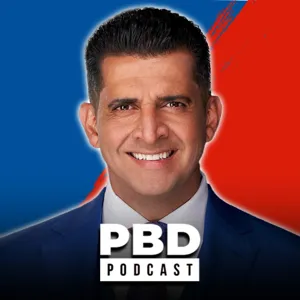Podcast Summary
Economic impact of Russia-Ukraine conflict and sanctions less severe than anticipated: One year after imposition, economic consequences of Russia-Ukraine conflict and sanctions are less severe than initially predicted, with Russia's economy shrinking by 2.1% in 2022, and multinational companies continuing to operate in Russia albeit at a reduced scale.
One year after Russia's full-scale invasion of Ukraine, the economic impact of the conflict and resulting sanctions is less severe than initially anticipated. According to a discussion on NPR's The Indicator for Planet Money, Russia's economy shrank by 2.1% last year due to the sanctions. This is less than the predicted decrease at the time the sanctions were imposed. The goal of the sanctions was to minimize the impact on the US and its allies while weakening Russia's ability to fund its war and cripple its financial system. Despite initial concerns, multinational companies continued to do business in Russia, albeit at a reduced scale. The economic impact of the conflict and sanctions is a complex issue, and the situation remains fluid. However, the discussion suggests that the economic consequences have not been as catastrophic as some had feared.
Russia's economy bounces back despite sanctions: Russia's economy has rebounded in the short term due to central bank actions and oil/gas exports, but long-term damage from sanctions is predicted.
Despite predictions of significant economic damage, Russia's economy has weathered the past year relatively well due to actions taken by its central bank and continued revenue from oil and gas exports. However, it's important to note that not all countries have joined in imposing sanctions against Russia, with major economies like China and India increasing their trade with Russia. This has helped Russia's economy bounce back towards pre-invasion levels in the short term. However, the long-term impact of sanctions could still be significant, with analysts predicting years of setbacks for Russia's economy. It's also worth mentioning that there are indications that Russia may be finding ways to get around some of the sanctions.
Suspicions of Sanctions Evasion through Fridge Trade: Kazakhstan's fridge imports from Europe and homeware/electronics exports to Russia raise concerns of sanctions evasion, potentially enabling Russia to bypass restrictions and continue to equip its military.
Kazakhstan's sudden surge in fridge imports from Europe last summer, coupled with a rise in homeware and electronics exports to Russia, has raised suspicions of sanctions evasion. The concern is that these fridges could be stripped of their advanced components, such as semiconductor chips, and used to produce military hardware for Russia, which is facing difficulties in obtaining these components due to international sanctions. This complex web of trade could potentially enable Russia to bypass restrictions and continue to equip its military, making the situation in Eastern Europe even more complicated.
Ukrainian grain exports: Successes and challenges: Despite the success of the UN-brokered deal allowing Ukrainian grain exports, uncertainty and challenges persist, including potential decreases in shipping activity due to agreement extensions and ongoing issues with sanctions evasion.
The situation in Eastern Europe regarding sanctions against Russia and the export of essential resources, such as grain, is complex and evolving. While there have been successes, like the UN-brokered deal allowing Ukrainian grain exports through the Black Sea, there are also challenges and uncertainties. For instance, the 3,000,000 tons of grain shipped out of Ukrainian ports in January is a positive sign of the agreement's success. However, this number is down from December, and the uncertainty surrounding the extension of the agreement could potentially decrease shipping activity. Furthermore, there are ongoing issues with sanctions evasion and loopholes, as seen in Kazakhstan, Armenia, and Kyrgyzstan. This situation underscores the importance of continued monitoring and adaptability in response to geopolitical developments.
Russian-imposed delays in Black Sea Grain Initiative inspections: Alleged Russian obstruction of inspections threatens food security and could lead to price hikes
The Black Sea Grain Initiative, which aims to prevent a repeat of last year's grain export disruptions from Ukraine, is facing challenges due to alleged Russian-imposed delays in ship inspections. This issue could lead to food shortages and increased prices, particularly affecting low-income countries. The Ukrainian Grain Association accuses Russia of obstructing the joint team's inspections, which has resulted in some ships waiting over a month to be cleared. Failure to extend the agreement could result in another year of food supply concerns. It's crucial to monitor this situation closely to ensure food security and prevent potential food price hikes.






